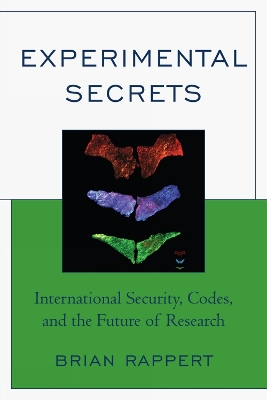Experimental Secrets addresses an unsettling question asked in recent years about the revolutionary potential of modern biotechnology: might the knowledge being gained be used to further-rather than prevent-the spread of disease? In other words, might the life sciences become the death sciences? To avert this prospect, many governments, science agencies, and others have proposed that researchers should subscribe to new codes of conduct. Experimental Secrets recounts five years of international efforts to devise such codes. These initiatives have raised a question of profound significance: Are there limits to what should be known or communicated in the name of security? To convey the experiences of policy-making, Experimental Secrets offers a marked departure from traditional forms of writing. It seeks to convey a sense of what has been at stake with codes through ways of writing that question the conventions of statecraft, science, and social research. Different styles of writing, formats of texts, and points of views are mixed in an effort to convey the tensions, frustrations, and promises associated with international diplomatic efforts. It will be of interest to those concerned with the relation between science and security as well as the possibilities for social research. Cover: "Making the Impossible Possible." Image from the Tissue Culture & Art Project "The Pig Wings," wherein pig bone marrow stem cells were cultivated into miniature models of wings. The different wings represent the horrific (bat wing), angelic (bird wing) and obsolete (dinosaur wing). The TC&A is hosted at SymbioticA The Centre of Excellence in Biological Arts, School of Anatomy and Human Biology, The University of Western Australia.
- ISBN10 0761844759
- ISBN13 9780761844754
- Publish Date 16 September 2009
- Publish Status Active
- Publish Country US
- Imprint University Press of America
- Format Paperback
- Pages 250
- Language English
